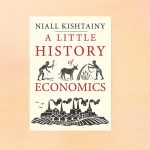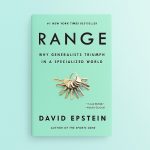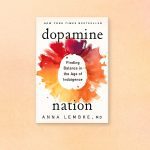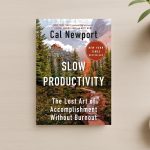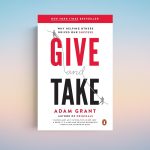Positive thinking is more than just “looking on the bright side.” True, lasting optimism is grounded in science – from cognitive behavioral techniques to positive psychology research. In recent years, both Amazon and The New York Times bestseller lists have spotlighted books by psychologists and researchers who show how cultivating optimism can improve wellbeing, resilience, and performance. For beginners, these Top 10 Books About Positive Thinking blend practical exercises with evidence‑based principles, debunk myths about forced positivity, and guide readers toward a healthier, more balanced mindset. Below are Top 10 Books About Positive Thinking each paired with a concise abstract to help you choose your path to a more constructive way of thinking.
Top 10 Books About Positive Thinking
1. Learned Optimism by Martin E.P. Seligman

Psychologist Martin Seligman, founder of the positive psychology movement, shows that optimism is a skill that can be learned, not an innate trait. Using decades of research, he explains the “explanatory style” – how we interpret events – and its impact on mental and physical health. Practical self‑tests help readers identify pessimistic patterns, while cognitive restructuring techniques teach how to reframe challenges in a more constructive light. Seligman balances scientific rigor with accessible examples, making the concepts approachable for beginners. The book also examines how optimism affects success in work, relationships, and even recovery from illness. By targeting habitual negative thinking, Seligman offers a structured plan to transform one’s outlook grounded in well‑validated psychological theory. The aim is not blind positivity, but realistic optimism that enhances resilience without denying difficulties.
2. The How of Happiness by Sonja Lyubomirsky
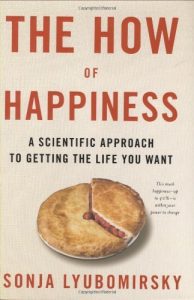
Drawing from the latest empirical research, psychologist Sonja Lyubomirsky provides a “happiness formula” and a toolbox of 12 science‑based strategies to boost well‑being. Each method – from practicing gratitude to cultivating kindness – is accompanied by measurement tools and implementation guides. Lyubomirsky emphasizes sustainable change, noting that fleeting pleasure isn’t the same as lasting happiness. She discusses the genetic and circumstantial limits on happiness, underscoring the 40% of variance we can control through intentional activities. For beginners, her mix of step‑by‑step plans and research summaries bridges the gap between academic findings and real‑life application. The result is a realistic, structured program grounded in psychology, not pop slogans.
3. Grit by Angela Duckworth
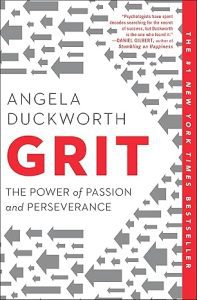
Psychologist Angela Duckworth reframes success as driven more by passion and perseverance than by raw talent. While not exclusively about positive thinking, Grit complements it by showing how sustained effort and belief in long‑term goals foster resilience. Duckworth blends personal stories, case studies, and research on achievement to show readers how to develop a grittier mindset. By encouraging consistent practice, embracing setbacks, and finding purpose, the book delivers a realistic, determined form of optimism that goes beyond mood and into sustained life approach.
4. The Power of Character Strengths by Ryan M. Niemiec & Robert E. McGrath

Based on the VIA Classification of Character Strengths, this guide helps readers identify and apply their top traits – from creativity to honesty – to enhance positive emotions, engagement, and meaning. Written by psychologists, it offers evidence‑based exercises to help beginners shift focus from fixing weaknesses to building on strengths. The framework integrates seamlessly into daily life, reinforcing the science that recognizing and applying personal strengths supports authentic, enduring positivity.
5. Flourish by Martin E.P. Seligman
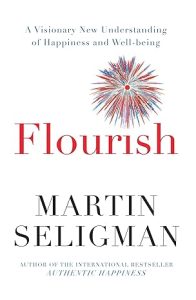
In this successor to Learned Optimism, Seligman expands the focus from happiness to overall well‑being, encapsulated in his PERMA model: Positive Emotion, Engagement, Relationships, Meaning, and Accomplishment. He draws on global policy initiatives, clinical practice, and personal anecdotes to show how individuals can build fulfilling lives. For beginners, Flourish offers both conceptual clarity and actionable steps grounded in robust psychological research – making optimism one piece of a larger life‑enhancement puzzle.
6. The Happiness Advantage by Shawn Achor
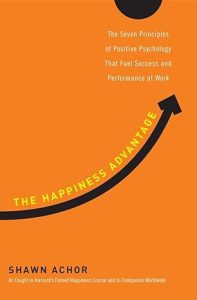
Harvard researcher Shawn Achor presents compelling evidence that happiness fuels success, not the other way around. He distills findings from positive psychology into seven practical principles for improving work performance, creativity, and resilience. Using stories from corporate training and academic research, Achor gives beginners a clear blueprint for cultivating a proactive, persistent positive mindset – the kind that supports both personal and professional growth without ignoring challenges.
7. Rethinking Positive Thinking by Gabriele Oettingen
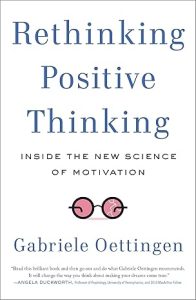
Psychologist Gabriele Oettingen challenges the “wishful thinking” trap, showing that positive fantasies can sometimes undermine motivation. Her WOOP method (Wish, Outcome, Obstacle, Plan) blends optimism with mental contrasting to yield concrete action. Based on decades of research, this book is perfect for beginners who want a balanced, evidence‑based way to combine hope with realistic planning – transforming positivity from a feel‑good idea into a driver of tangible results.
8. Bright‑Sided by Barbara Ehrenreich
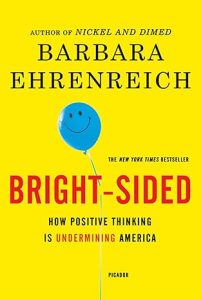
While not a manual for positivity, Ehrenreich’s sharp critique of the “relentless promotion” of happy talk is an essential counterbalance for beginners. Drawing on history, economics, and her own cancer experience, she argues for a grounded, reality‑aware optimism – one that acknowledges hardship while still working toward improvement. It’s a valuable reminder that genuine positive thinking must be informed by truth, not denial.
9. Emotional Agility by Susan David
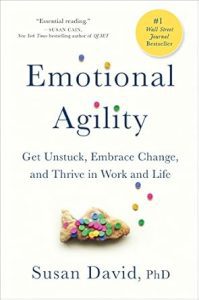
Harvard psychologist Susan David introduces the concept of “emotional agility” – the ability to navigate one’s inner world with mindfulness, values, and adaptability. She shows how to face uncomfortable emotions, separate from them, and make choices aligned with core values. For beginners, this is a scientific, compassionate pathway to a form of positive thinking rooted in emotional honesty, resilience, and authentic living.
10. Mindset by Carol S. Dweck
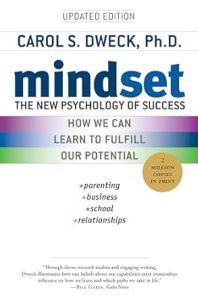
Stanford psychologist Carol Dweck’s groundbreaking research on “fixed” vs. “growth” mindsets reveals how beliefs about our potential shape learning, relationships, and resilience. Beginners will find a clear, evidence‑based framework for shifting from a self‑limiting perspective to one that embraces challenge and effort as pathways to growth – an empowering foundation for long‑term, realistic positivity.
+ Book Summary of Mindset: The New Psychology of Success By Carol S. Dweck
Conclusion: Top 10 Books About Positive Thinking
Positive thinking for beginners should be grounded in credible science, not empty affirmations. Top 10 Books About Positive Thinking many by leading psychologists, bridge rigorous research and accessible advice. They offer a roadmap toward optimism that is resilient, realistic, and life‑enhancing, giving readers the tools to cultivate not just a sunnier outlook, but a richer, more fulfilling life.
Engage with Us: What Are Your Favorite Books?







